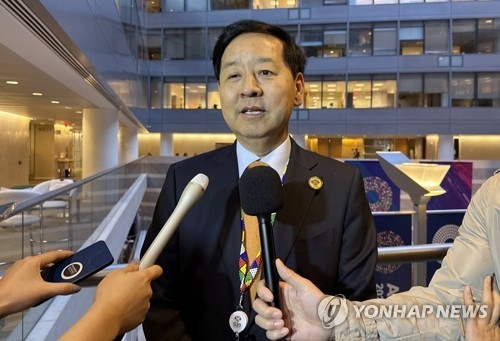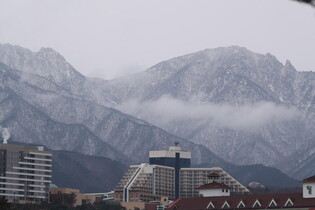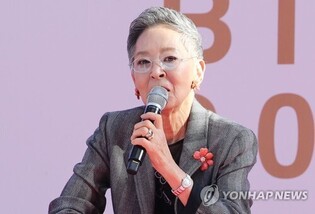 |
| ▲ South Korea's Finance Minister Koo Yun-cheol speaks to the press in Washington, D.C., on Oct. 16, 2025. (Yonhap) |
finance minister-US trade talks
Minister says it's 'uncertain' whether Trump will accept Korea's position against 'upfront' US$350 bln payment
By Song Sang-ho and Lee Yu-mi
WASHINGTON, Oct. 16 (Yonhap) -- South Korea's Finance Minister Koo Yun-cheol said Thursday it remains uncertain whether U.S. President Donald Trump can be persuaded into accepting Seoul's position against his demand for an "upfront" investment payment of US$350 billion as part of a trade deal struck in July.
Koo made the remarks in a meeting with reporters in Washington, D.C., as Seoul has balked at Trump's demand for a massive direct equity investment, which it has said could cause an adverse impact on Korea's foreign exchange market and trigger a crisis akin to the 1997 Asian financial meltdown.
"I understand that a swift upfront payment of $350 billion is what the U.S. has talked about," Koo said.
"Although the secretaries in charge understand (Korea's position), there is really an uncertainty over to what extent we can persuade the president and whether President Trump can accept it," he added.
The minister noted that during an encounter with U.S. Treasury Secretary Scott Bessent on Wednesday, he relayed Korea's concerns that the demand for an upfront investment payment could undermine stability in Korea's foreign exchange market.
"I have told Secretary Bessent that given the foreign exchange circumstances (in Korea), it is difficult for Seoul (to make an upfront payment), and Secretary Bessent is aware that it is difficult for Korea to make such a payment all at once," he said.
Koo also asked Bessent to explain Seoul's position to top Trump administration officials, including Commerce Secretary Howard Lutnick, he said, noting that Bessent responded that he would give sufficient explanation to them.
He underscored the need to assess the ramifications of investment schemes on stability in the country's foreign exchange market.
"If that scheme involves investing $350 billion upfront, that would create a problem in terms of foreign exchange market stability," he said. "But if South Korea's position is sufficiently reflected in that scheme to reduce the impact on the market, then things that we need to supplement will be reduced."
The two countries reached a framework trade deal in late July, under which Seoul has committed to investing $350 billion in the U.S., among other pledges, in return for Washington's agreement to lower its "reciprocal" tariff and sector-specific duty on South Korean autos to 15 percent from 25 percent.
But the deal has yet to go into force amid negotiations to bridge differences over a set of sticking points, including how to fund the investment package.
Koo was in the U.S. capital to attend meetings of the Group of 20 finance ministers and the annual gatherings of the International Monetary Fund and World Bank.
(END)
(C) Yonhap News Agency. All Rights Reserved


















![[풀영상] 영화 '하트맨' 제작보고회|권상우 Kwon Sangwoo·문채원 Moon Chaewon·박지환 Park Jihwan·표지훈 피오 P.O|HEARTMAN](/news/data/20251211/p179554806839266_806_h.jpg)














